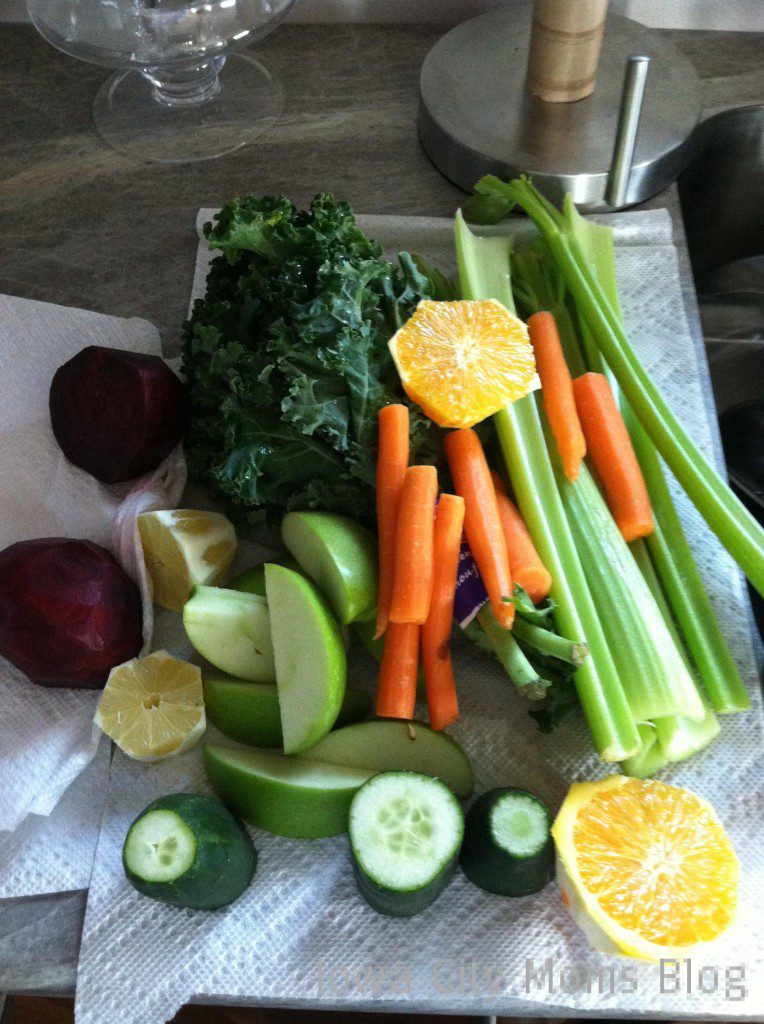I have never had the best eating habits, but I wasn’t the worst. I attempted to integrate vegetables into my diet and succeeded maybe 50% of the time, I would say. Fruits were easier, although I am not a huge fan of a lot of fruits. After I found out I was pregnant, as with many women, I started paying closer attention to my eating habits.
Then the morning sickness hit.
And I ate whatever I could get down. Whether it was chicken soup or a hot ham-n-cheese from Hardee’s, the only goal was food in stomach.
Now that the first trimester and the morning sickness have both passed, I have been refocusing my efforts to eat better. My goals are to incorporate more fruits and vegetables into my diet, as that is where my major downfalls are. Here are some small things that have worked for me so far:
5 Tips for Eating Healthy During Pregnancy
Liquefy my food
I am always at least 10 minutes late to everything I do, so mornings are not a good time for a four-course meal. Enter: smoothies. Combining berries, Greek yogurt, and almond milk, this concoction is packed with antioxidants, vitamins, protein, and calcium – lots of good things for a pregnant woman. I have also been playing around with juicing. There are varying opinions on pregnant women and raw juice, so I’ve been keeping it to about once per week with only organic produce for now. I think after Little Man gets here, I would like to up it.
Veggies first
I have a tendency to fill up on the good tasting, comfort stuff first (AKA carbs). So, I’ve switched up how I eat. Now while I am cooking dinner, I make sure to eat at least two servings of veggies before I put anything else on my plate. I also make sure to eat some sort of vegetable first for lunch before moving onto the protein. This ensures I won’t be too full by the end of my meal to eat my vegetables.
Add a little something
Veggie ranch dip or butter are probably not the healthiest things, but I figure if it helps get the veggies down, it’s worth the extra (unhealthy) calories. So I’ve been adding extras to my veggies – lemon pepper and Parmesan on my steamed broccoli, and butter and garlic powder on my green beans.
Eating what I like
As I mentioned, vegetables are not my strong suit. So, I make sure to stock my fridge with lots of vegetables that I know that I like, instead of forcing down food that my palette says “eh” to.
Convenience
In a perfect world, I could work 40+ hours per week, keep my house spotless, and have a well-rounded meal on the table by six. The reality? I’m tired when I get home (especially now) and have a million and one things to get done (and the baby is not even here). Enter frozen fruits and vegetables. I did some research on the nutritional value of frozen fruits and vegetables. While it definitely varied, what I gathered is that frozen produce is harvested and frozen at its peak ripeness – when there are the most nutrients. You do lose some to microwaving (or however you decide to cook it), but in my world, it’s better than nothing.
What else? I’d love to hear from some experienced mamas on how I could easily incorporate more fruits and vegetables into my diet. I figure I can also use these tactics on my child in a few years!












My most helpful tactic is putting serving-sized portions of healthy snacks in individual containers in the fridge or cupboard, so that when I’m hungry, I just grab one or two ready-to-go snacks. I do that for my kiddos, too!
You’re doing a good job, Katie! I definitely gave into some cravings but for the most part I tried to focus on maintaining a healthy, real food diet. Most days I did a fairly good job, but I had lots of food aversions all the way up until delivery. I was okay with most fruits but really struggled with vegetables (broccoli!) and some proteins. Have you ever thrown 1/2 an avocado into a smoothie rather than a banana?! Good for you AND good for baby brain development too! Anxious to hear more about juicing!
Choose at least one good source of vitamin C every day, such as oranges, grapefruits, strawberries, honeydew, papaya, broccoli, cauliflower, Brussel sprouts, green peppers, tomatoes, and mustard greens. Pregnant women need 70 mg of vitamin C a day.
Τhe first question is, “Will the h – CG diet help me lose weight. Begin your alternative treatment with flushing your body and gallbladder. Before cooking, any fat on the 100-gram portion should be cut away, and no additional fats should be added during cooking. I would like to back up a minute and give you a little history, I have lost hundreds of pounds in my lifetime, and in fact I have never been on any diet that I didn’t loose weight. The theory behind combining the Simeons low calorie diet program with an hcg injection is that when hcg is present in the body it allows your body to metabolize and burn more fat for energy and nourishment, which is the way a pregnant women is able to provide sustenance to her growing child even before she realizes she is pregnant and starts eating accordingly.
Basically, you can only do 5 invoices, 5 proposals,
and 5 expenses in the free version. They come to
the picture even in divorce cases in order to establish compensation that is needed for child support or spouses.
Every year, thousands of vacancies open up in the public sector.